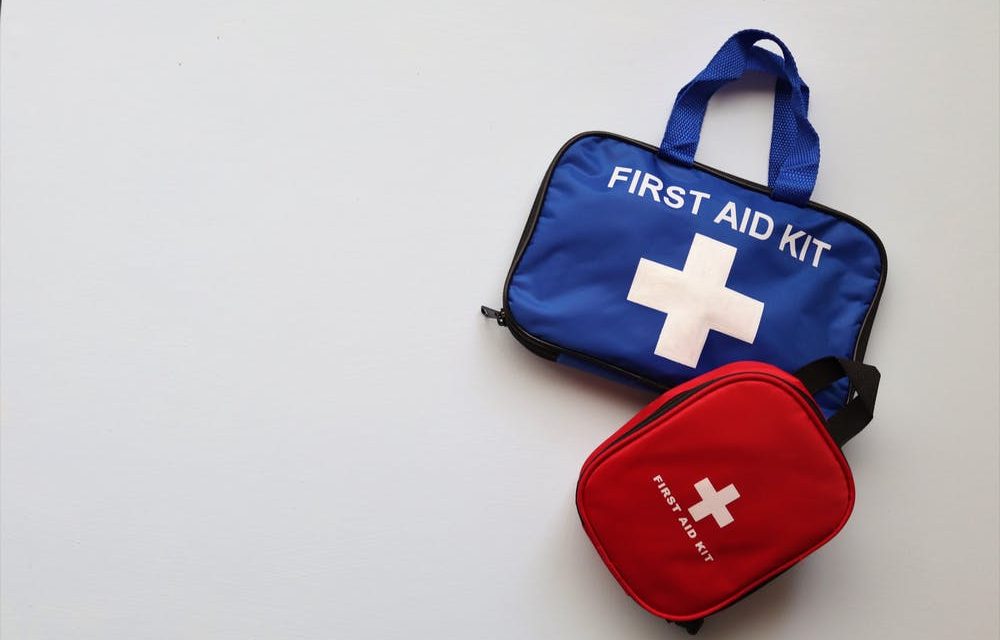Like regular first aid, a mental health first aid kit is there as a first response. Instead of plasters and anti-septic cream, a mental health first aid kit it is a collection of strategies and intentions of self-care. Having provisions for your mental health is essential to good wellbeing and is increasingly urgent as we move through our third national lockdown. Many are struggling to manage increased feelings of isolation, anxiety and low mood.
Here is a list of tools to add to your mental health first aid kit…
Step 1: Create a check-in list
Often when our mental health is poor, we neglect our basic self-care needs. Writing a simple list of questions to ask yourself when you are struggling, can be a great way to ensure you’re looking after yourself. Whether you jot it down in a notebook, save it to your desktop or write it in your phone, make sure your kit is easily accessible for when you need it the most.
Have I drunk water today?
When did I last eat a meal?
Have I taken my medication?
Have I freshened up (washed, changed clothes, cleaned teeth etc)?
Did I get enough sleep last night? Would a nap help?
Do I need to take some deep breaths and ground myself?
Do I need to reach out to someone for support?
Step 2. Save important numbers to your phone
During a mental health crisis, it may be hard to think straight and take decisive action. Having some useful numbers saved in your phonebook can ensure you always know where to turn. It’s best to do this on a day when you are in a more positive headspace. Some useful numbers include:
Shout All ages can text ‘Shout’ to 85258 (free and available 24/7)
Switchboard If you identify as gay, lesbian, bisexual or transgender, you can call Switchboard on 0300 330 0630 (10am–10pm every day)
Samaritans To talk about anything that is upsetting you, you can call 116 123 (free and available 24/7)
Step 3: Download useful apps
From meditation to depression related apps – there are lots of phone applications available that can support you during a crisis. Many of them also help promote good mental health, encouraging a better sleep routine and more mindfulness in your day to day life.
The NHS and Mind both recommend a number of trusted apps and online resources that are worth checking out and adding to your mental health first aid kit. Some of these include:
Stay Alive
(Free to use)
This app is a pocket suicide prevention resource, packed full of useful information to help you stay safe. You can use it if you are having thoughts of suicide or if you are concerned about someone else who may be considering suicide.
Silvercloud
Silvercloud provides a wide range of supportive and interactive programmes, tools and tactics for mental and behavioural health issues. These programmes address wellbeing, life balance, time management, communication skills, goal setting, communication and relationship management, anger management, stress management, relaxation and sleep management, among many others.
Step 4. Have a list of pick-me-ups
Write a list of things you know will help lift your mood. Chances are, if the list is long enough, you will fancy doing at least one of the activities.
- Move your body in a way that brings you joy – go for a run, walk or cycle. Stretch your body. Dance to your favourite songs. Moving can help release endorphins
- Drink a soothing hot drink such as a cup of tea or warm milk (be mindful of caffeine)
- Watch your favourite film or a tv show that feels familiar and brings you comfort
- Listen to music that reminds you of happy memories or a podcast that makes you laugh
- Start a new puzzle or book. The library has an abundance of free eBooks and audiobooks
There is a lot of fear and shame around mental health but talking about it helps break that down. We all have mental health, just like we all have physical health. Poor mental health doesn’t discriminate based on age or gender so if you are struggling, or know someone who is, these tools may be useful to make note of.
What’s in your mental health first aid kit? We’d love to know in the comments.




